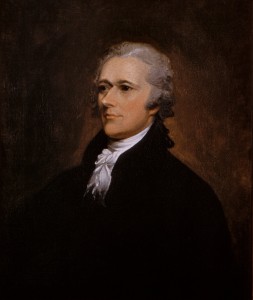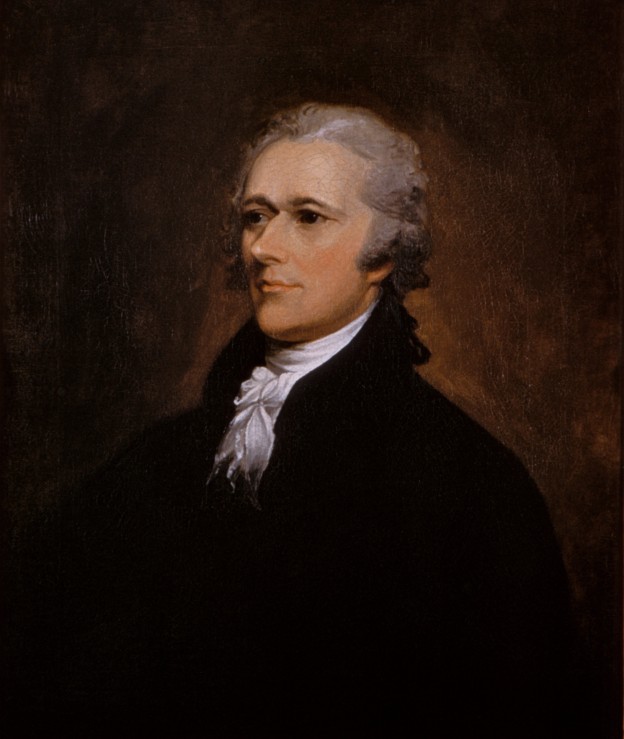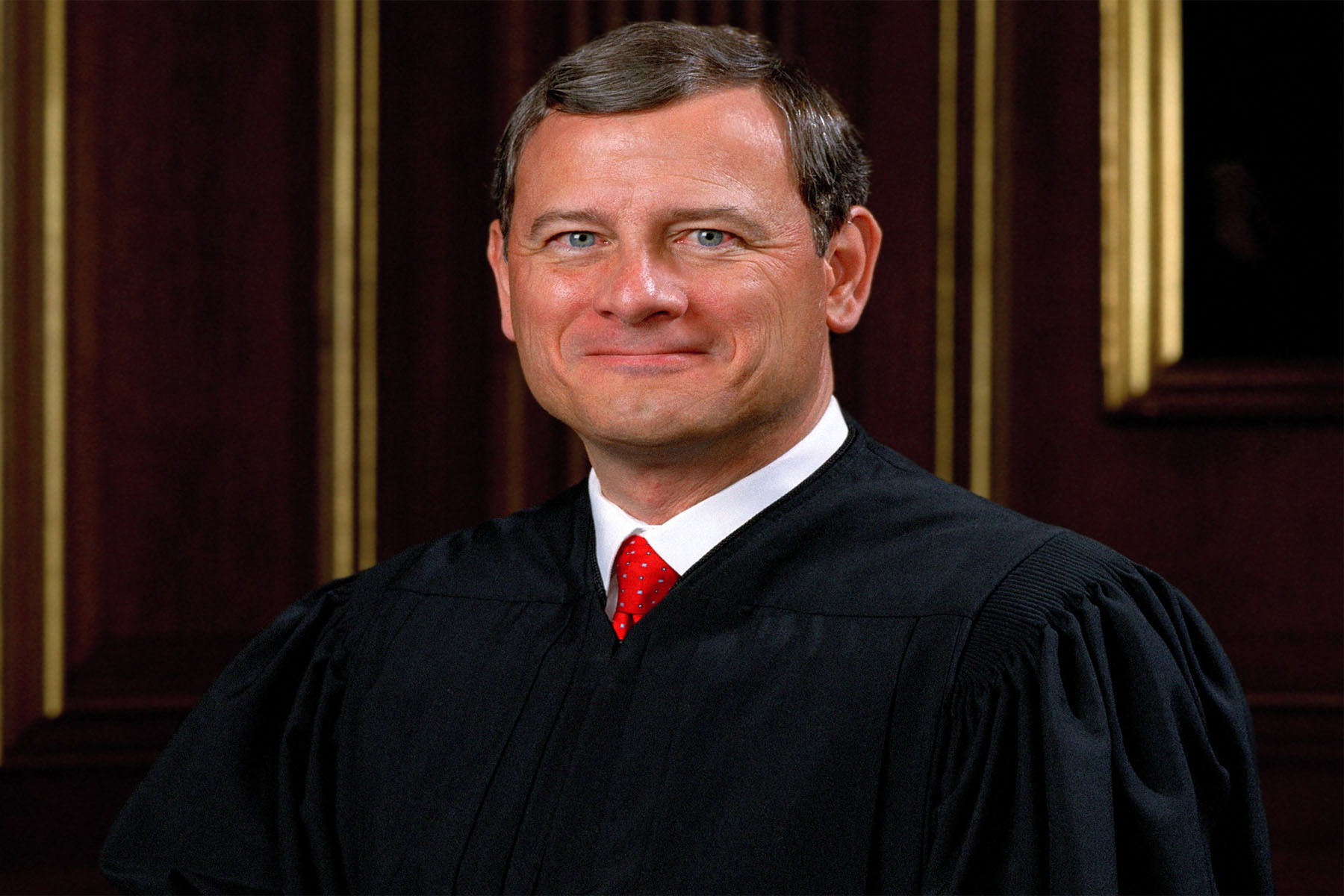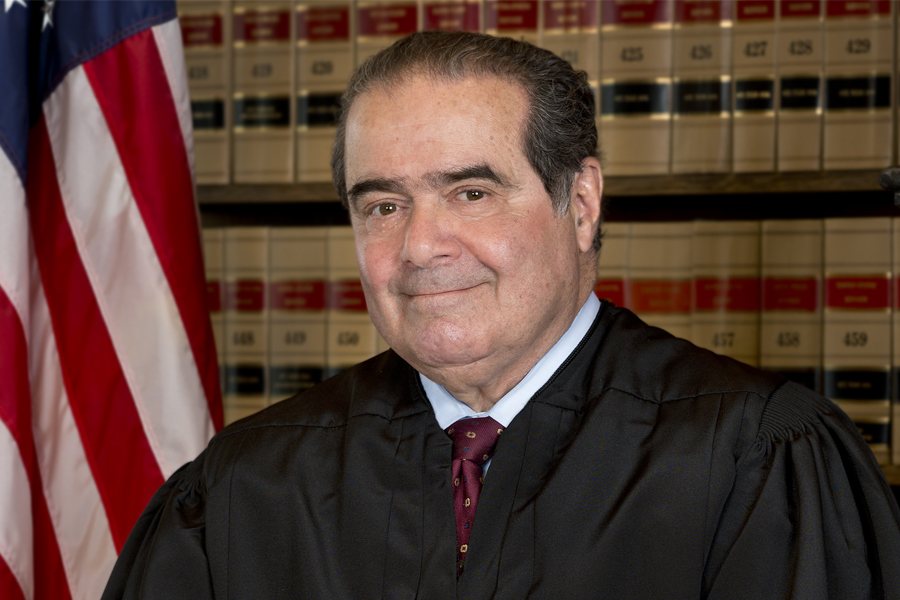In The Federalist No. 78, Alexander Hamilton wrote:
“The judiciary, on the contrary, has no influence over either the sword or the purse; no direction either of the strength or of the wealth of the society; and can take no active resolution whatever. It may truly be said to have neither FORCE nor WILL, but merely judgment; and must ultimately depend upon the aid of the executive arm even for the efficacy of its judgments. This simple view of the matter suggest several important consequences. It proves incontestably, that the judiciary is beyond comparison the weakest of the three departments of power…”

The “sword” is the executive branch of our republic and the “purse” is obviously the legislative. Hamilton is explaining how the judiciary is the least dangerous branch to the Constitution. In theory, yes this seems true but many conservative scholars and constitutionalists will argue that in the past 40 years or so, the judicial branch is slowly becoming more powerful than the framers ever intended and certainly has influence over the sword and the purse like never before.
In some circles, the Supreme Court decisions released in the month of June of every year are more important than who resides in the Oval Office or who controls Congress. Our country puts so much hope and faith into these nine men and women in black robes.
Case in point, on Wednesday, the Supreme Court heard oral arguments in the King v. Burwell case which will determine whether or not Obamacare subsidies handed out to participants on the federal exchange who reside in states where an exchange was not set up are constitutional. The IRS has been issuing these tax credits to those participants who bought insurance on the federal exchange even though the law as clearly written declares that only state exchanges can issue subsidies.
It is clear that the executive branch is overstepping its authority and yet the decision of constitutionality hangs in the balance due to the political circus surrounding the highest court.
Once again, political pundits, scholars, activists, and others speculate just how the justices will vote. Will Chief Justice John Roberts vote again with the liberal members of the court and uphold Obamacare? Did the question asked by the Justice Anthony Kennedy signal which way the “swing voter of the court” is leaning? Will Justices Elena Kagan and Sonia Sotomayor, both Obama appointees, help save the president’s signature law?
If the questions and statements that some of the justices uttered on Wednesday morning are any indication of the activism that exists on the court today, Hamilton’s essay on the judiciary being the weakest of the three branches will slowly erode away.
For example, Justice Ruth Bader Ginsburg was doing the work of the government (defendant) by questioning if the plaintiffs had standing (the right to sue) if they weren’t personally injured by the IRS. Well, it’s a little too late for that don’t you think since the lower court saw the standing and the government never brought it up prior to Wednesday’s hearing. Nice job of activism!
Also, Justice Sonia Sotomayor brought up the issue of coercion whereby the states will be forced by the federal government to set up state exchanges should the court rule in favor of the plaintiffs. As The Daily Signal points out very well:
“Of course, the problem with this argument is that prior cases involving coercion of states by the federal government have involved programs where state governments would lose federal dollars if they did not comply with federal requirements. But here, there are no federal dollars going to state governments that can be used to “coerce” their behavior – the federal tax credits are payable to individuals.”
And yet another liberal justice of the court, Elena Kagan, brought up a peculiar point about federal and state exchanges and who can set them up by analogizing that it is no different than asking one of her law clerks to write a memo only to have another one of her clerks take over and finish the job. Michael Carvin, the plaintiffs’ lawyer, countered her by stating that Congress specifically wrote that the states set up the exchanges, not the federal government. Touche!
Some very odd questions and statements indeed coming from the Supreme Court. It is very clear to us that the law, as written, forbids the IRS from extending tax credits to those participants who reside in states with no state exchange.
Mr. Carvin stated at the very beginning of the oral arguments, “This is a straightforward case of statutory construction where the plain language of the statute dictates the result.”
In other words, read the law as written and judge the plain text. Unfortunately, that’s not how things work as we saw in 2012 when Chief Justice John Roberts basically rewrote the Obamacare law by calling it a “tax” and thus, making it constitutional in the eyes of the court. You can’t even trust more “conservative” judges these days, but that’s for another day.
Activism on the bench from the low courts to the supreme court of the land is now an unfortunate fabric of our society.
Whether it is Justice Stephen Breyer stating that he looks at international law to help form his opinions, or Justice Ginsburg telling the Egyptians that she wouldn’t use the U.S. Constitution as a model in a post-Arab Spring, or the chief justice rewriting laws, several of the members of the Supreme Court are radical and usurping power where it should not exist.
One of Conservative First’s leaders, radio host, and constitutional scholar Mark Levin states on page 1 of his book Men In Black: How the Supreme Court is Destroying the Constitution that in many ways “…the justices are more powerful than members of Congress and the president.”
Indeed they are.
The sword and the purse are depending more and more on the judiciary to bail them out. And as each June passes, our Constitution is slowly being shredded and we risk no longer being a constitutional republic if the judiciary continues to grasp more and more power.
Alexander Hamilton’s Federalist No. 78 essay is more relevant today than ever before despite the effort by so many to erode its importance.




